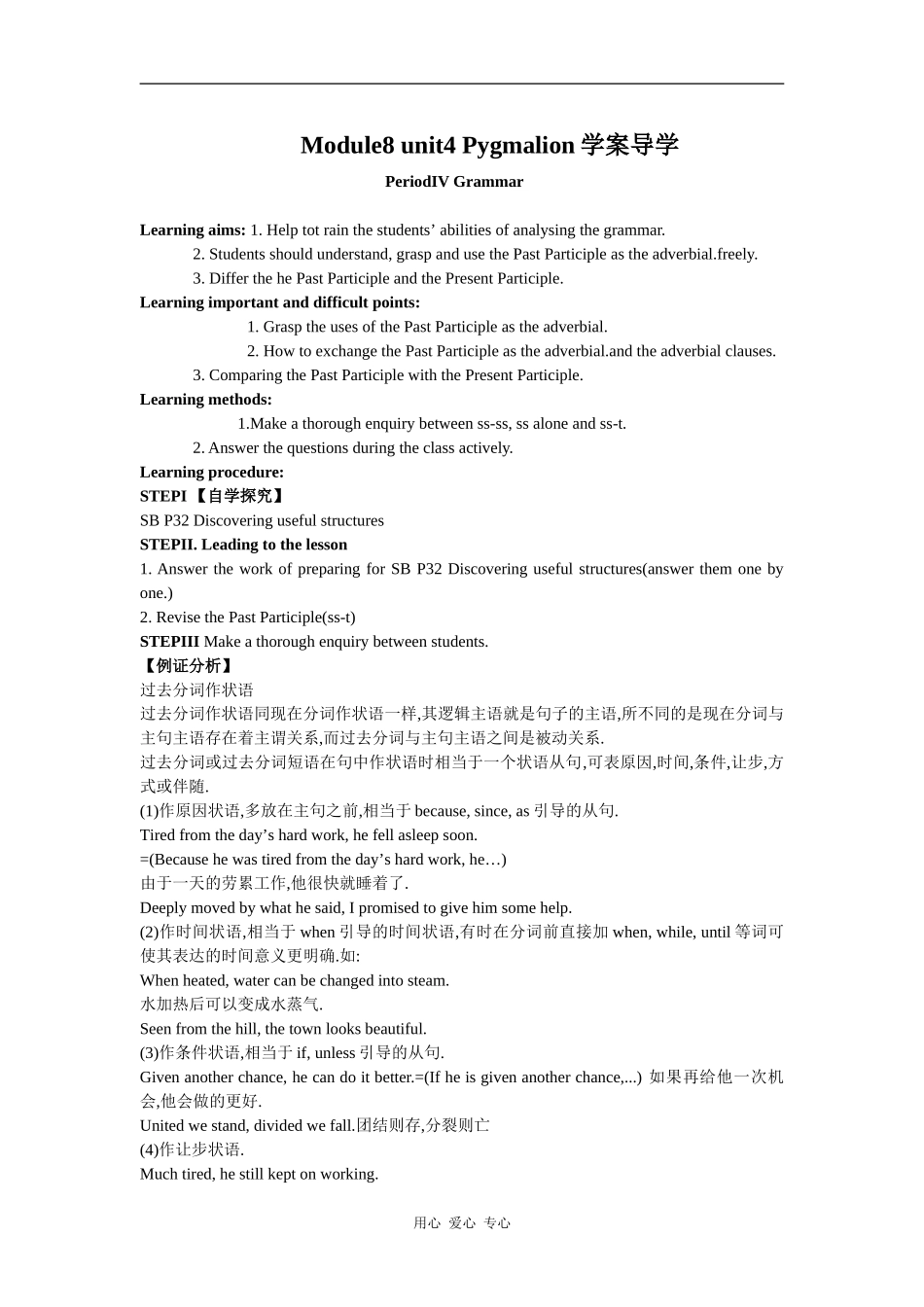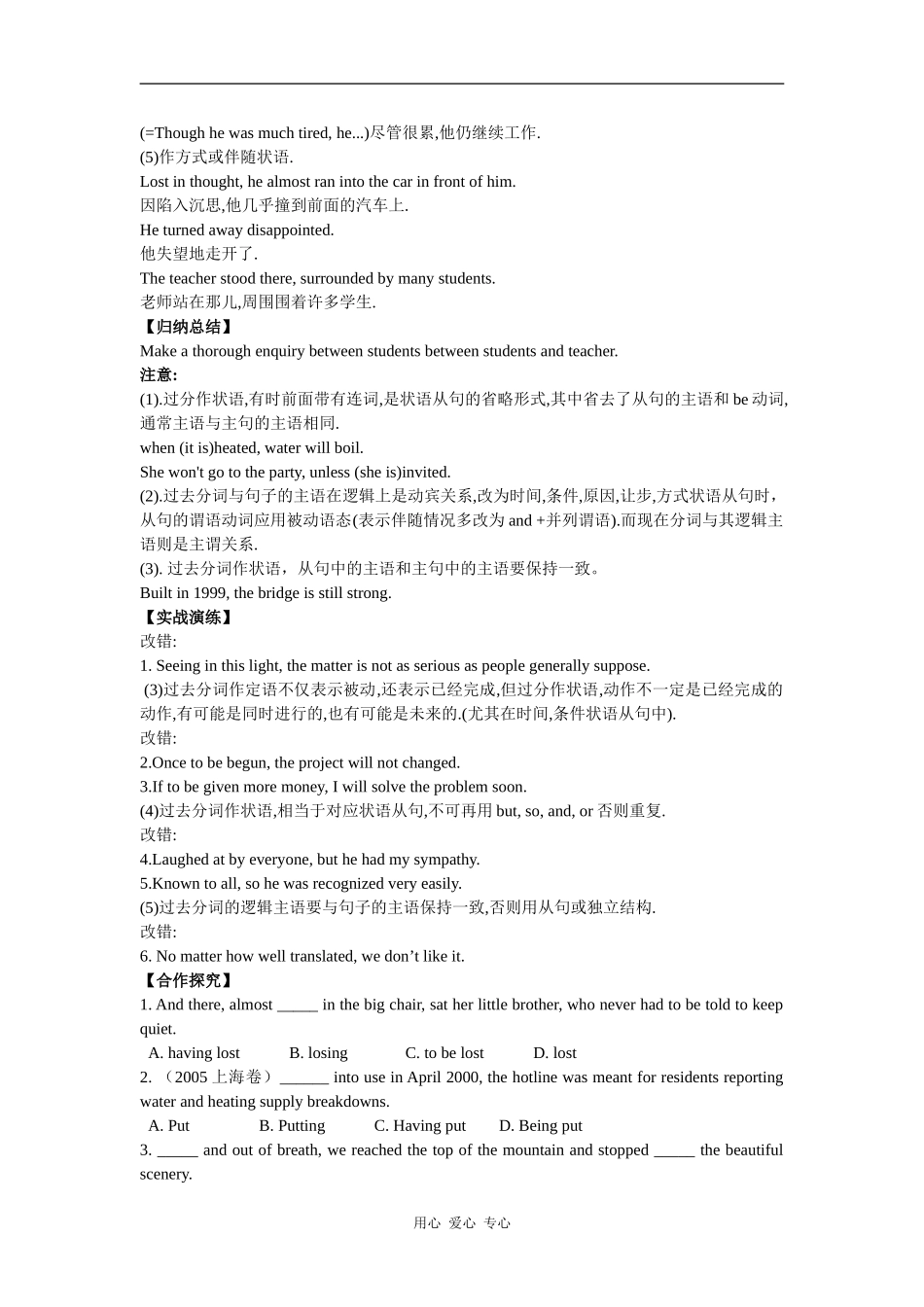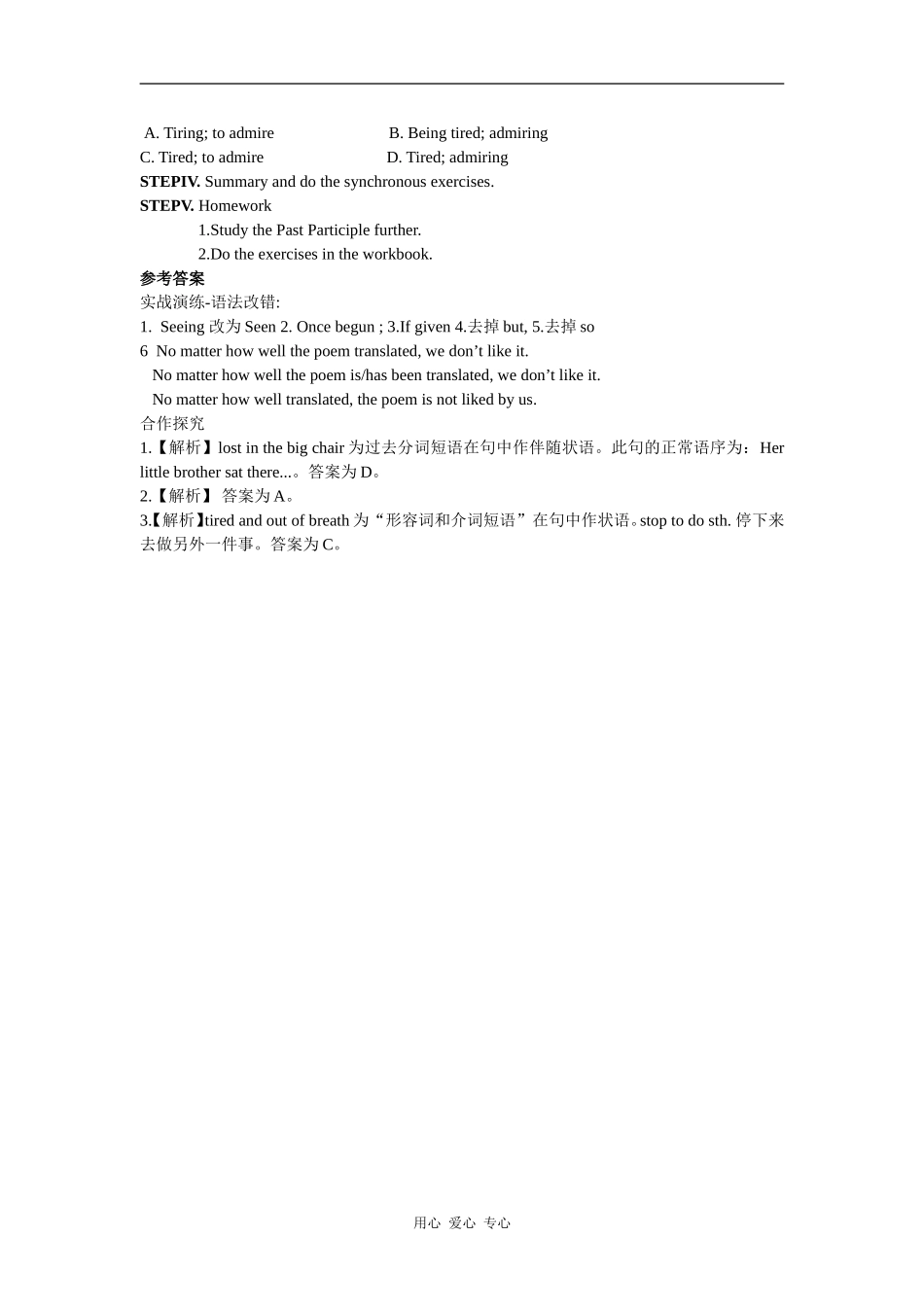Module8 unit4 Pygmalion 学案导学PeriodIV GrammarLearning aims: 1. Help tot rain the students’ abilities of analysing the grammar. 2. Students should understand, grasp and use the Past Participle as the adverbial.freely. 3. Differ the he Past Participle and the Present Participle.Learning important and difficult points:1. Grasp the uses of the Past Participle as the adverbial.2. How to exchange the Past Participle as the adverbial.and the adverbial clauses. 3. Comparing the Past Participle with the Present Participle. Learning methods: 1.Make a thorough enquiry between ss-ss, ss alone and ss-t. 2. Answer the questions during the class actively.Learning procedure:STEPI 【自学探究】 SB P32 Discovering useful structuresSTEPII. Leading to the lesson1. Answer the work of preparing for SB P32 Discovering useful structures(answer them one by one.)2. Revise the Past Participle(ss-t)STEPIII Make a thorough enquiry between students.【例证分析】过去分词作状语过去分词作状语同现在分词作状语一样,其逻辑主语就是句子的主语,所不同的是现在分词与主句主语存在着主谓关系,而过去分词与主句主语之间是被动关系.过去分词或过去分词短语在句中作状语时相当于一个状语从句,可表原因,时间,条件,让步,方式或伴随.(1)作原因状语,多放在主句之前,相当于 because, since, as 引导的从句.Tired from the day’s hard work, he fell asleep soon.=(Because he was tired from the day’s hard work, he…)由于一天的劳累工作,他很快就睡着了.Deeply moved by what he said, I promised to give him some help.(2)作时间状语,相当于 when 引导的时间状语,有时在分词前直接加 when, while, until 等词可使其表达的时间意义更明确.如:When heated, water can be changed into steam.水加热后可以变成水蒸气.Seen from the hill, the town looks beautiful.(3)作条件状语,相当于 if, unless 引导的从句.Given another chance, he can do it better.=(If he is given another c...


